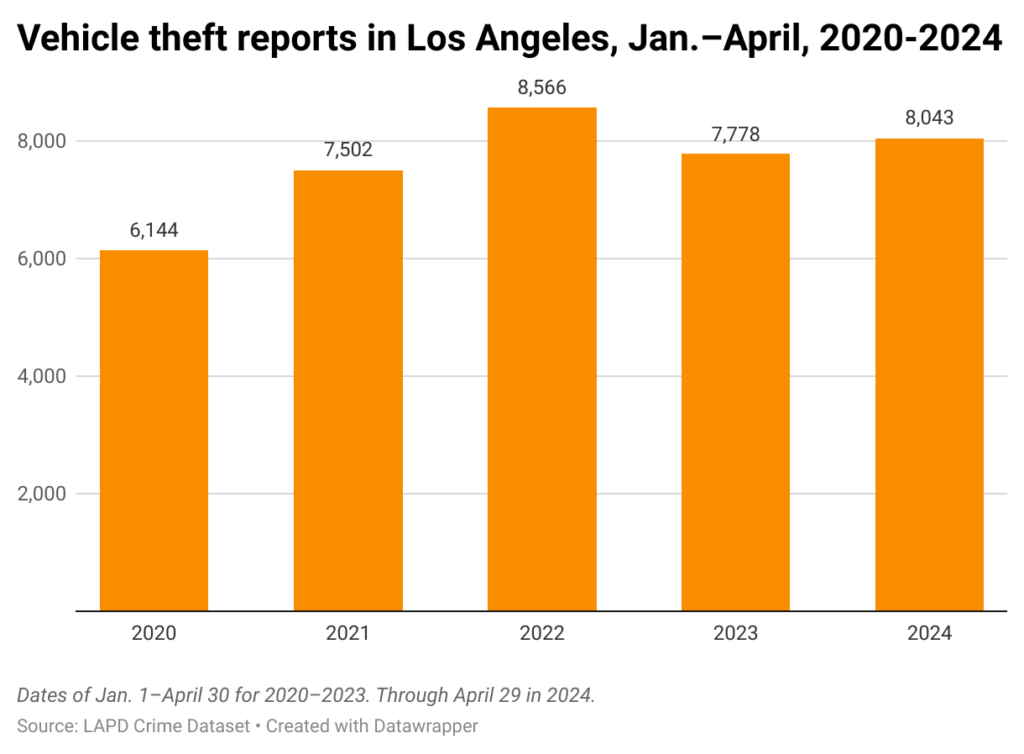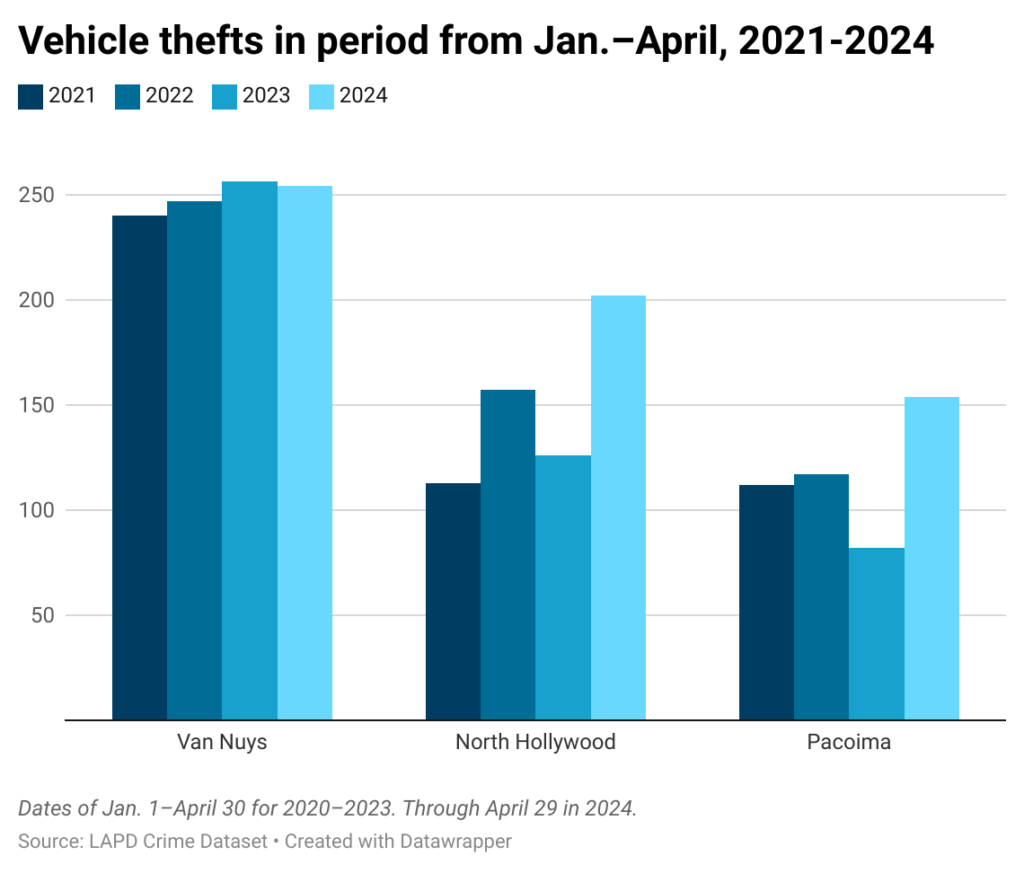Car thefts surging in San Fernando Valley

Vehicle thefts are up sharply in the San Fernando Valley in the first part of 2024. The increase in the area is more than five times the total citywide rise.
At last week’s meeting of the Los Angeles Police Commission, interim LAPD Chief Dominic Choi said that car thefts in approximately the first four months of the year are up 5.4% over the same period in 2023. “Our motor vehicle thefts are increasing in Valley Bureau, where there’s an increase of 28.2%,” he said.
Car thefts nationwide began accelerating with the onset of the pandemic, and numbers in Los Angeles have never reverted to pre-COVID levels. There were 25,825 car thefts in the city last year, according to publicly available LAPD data. That marked the fourth consecutive annual increase, and represented a 64% spike over the count in 2019.
[Get crime, housing and other stats about where you live with the Crosstown Neighborhood Newsletter]
From Jan. 1–April 29 (the latest day for which full data is available), the LAPD tabulated 8,043 stolen vehicles. The count in the first four months of 2022 was higher, though the current level far exceeds the figure in that time frame in 2020.

Neighborhoods hit hard
A full breakdown of where car thefts are happening has become difficult to detail due to a shift in how the LAPD assembles and presents crime data. However, Choi said that trends from the recent past continue.
“We’re seeing those [stolen] vehicles still continue to be Kias, Chevrolets and Hyundais,” he told the Police Commission.
According to police data, from Jan. 1–April 29 there were 2,371 vehicle thefts in Valley Bureau, which encompasses seven police police stations that patrol dozens of neighborhoods.
In recent years some neighborhoods have had fairly consistent vehicle theft figures, while others have seen more dramatic ups and downs. Van Nuys is among the former; the community registered 254 stolen vehicle reports from Jan. 1–April 29, similar to the count in each of the three previous years.
It was a different picture in North Hollywood, where there were 202 stolen vehicle reports in the first four months of the year, up 60% from the same period in 2023. In Pacoima there were 154 reports in the first four months of the year. The count in 2023 was 82.

Los Angeles, and the Valley, are not alone. An April report from the National Insurance Crime Bureau found that there were more than 1 million vehicle thefts in the United States in 2023, an approximately 1% increase from the previous year.
Not surprisingly, populous California last year recorded more stolen cars than any other state, with 208,668. California also had the fifth highest rate, with 534.5 vehicle thefts per 100,000 residents, according to the NICB. The highest rate—and the only place above 600—was in Washington, D.C., where there were 1,150 thefts per 100,000 residents.
In February, Choi said that thieves have begun cloning key fobs to steal Chevy Camaros. David J. Glawe, president and CEO of the NICB, indicated this is a nationwide problem.
“Criminals are employing increasingly sophisticated methods to steal vehicles, including the use of advanced technology to bypass security systems,” he stated. “It is critical that industry and law enforcement work together to develop more effective strategies for combating auto theft.”
How we did it: We examined publicly available crime data from the Los Angeles Police Department from Jan. 1, 2019–April 29, 2024. Learn more about our data here.
LAPD data only reflects crimes that are reported to the department, not how many crimes actually occurred. In making our calculations, we rely on the data the LAPD makes publicly available. LAPD may update past crime reports with new information, or recategorize past reports. Those revised reports do not always automatically become part of the public database.
Have questions about our data or want to know more? Write to us at askus@xtown.la.






